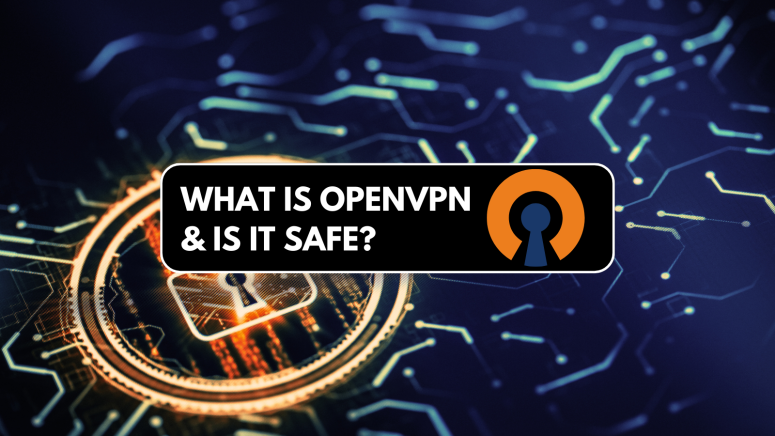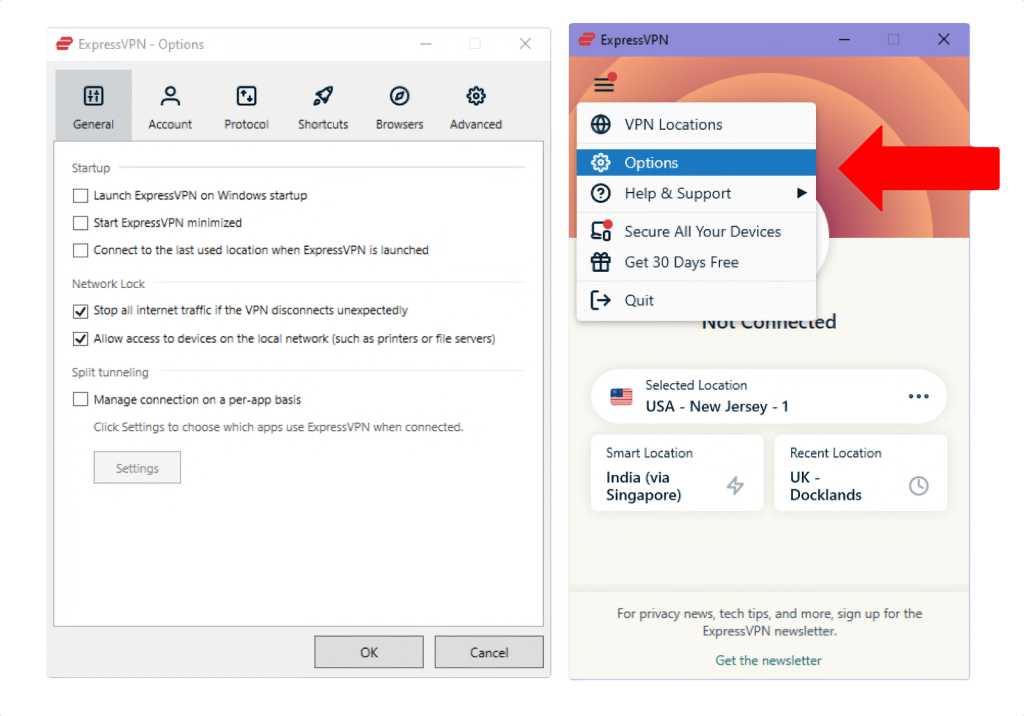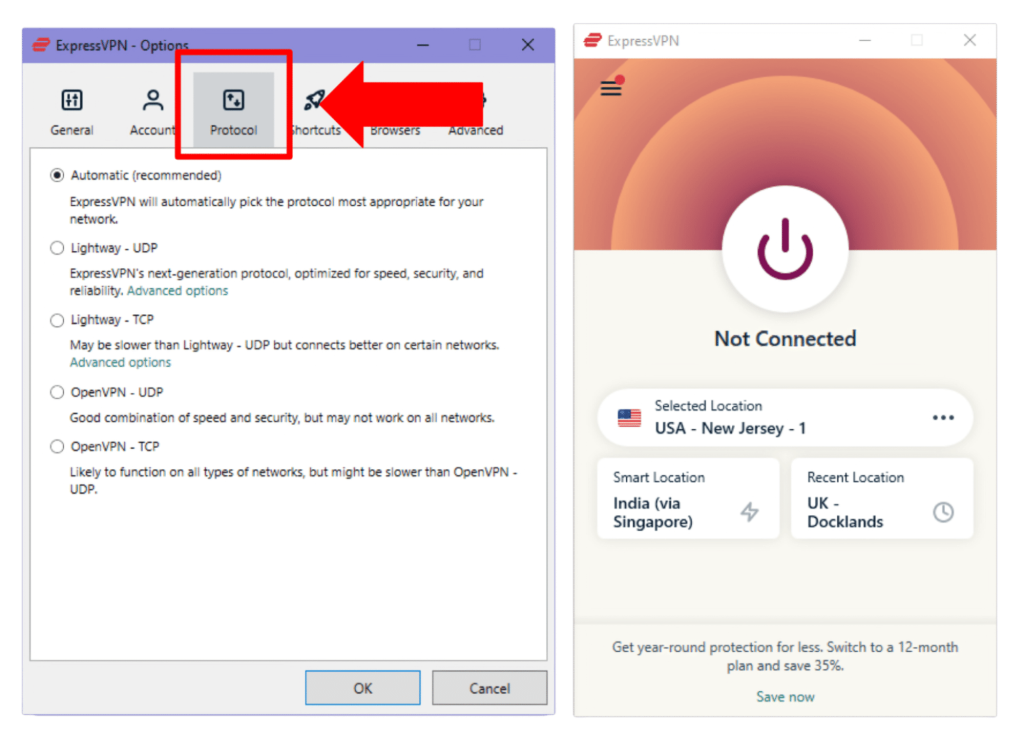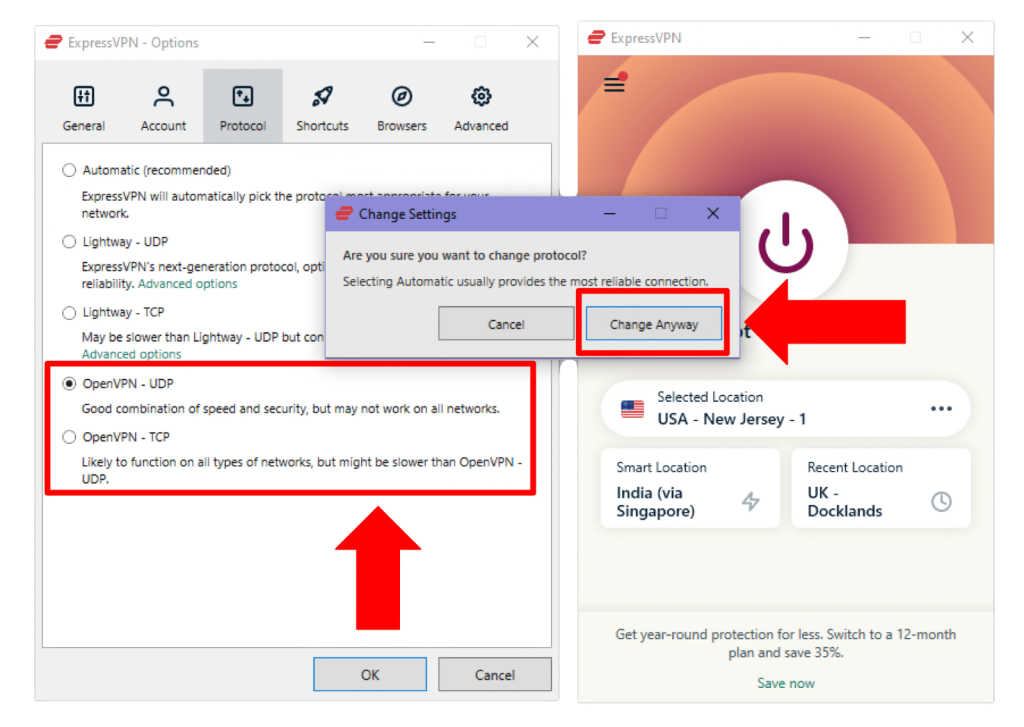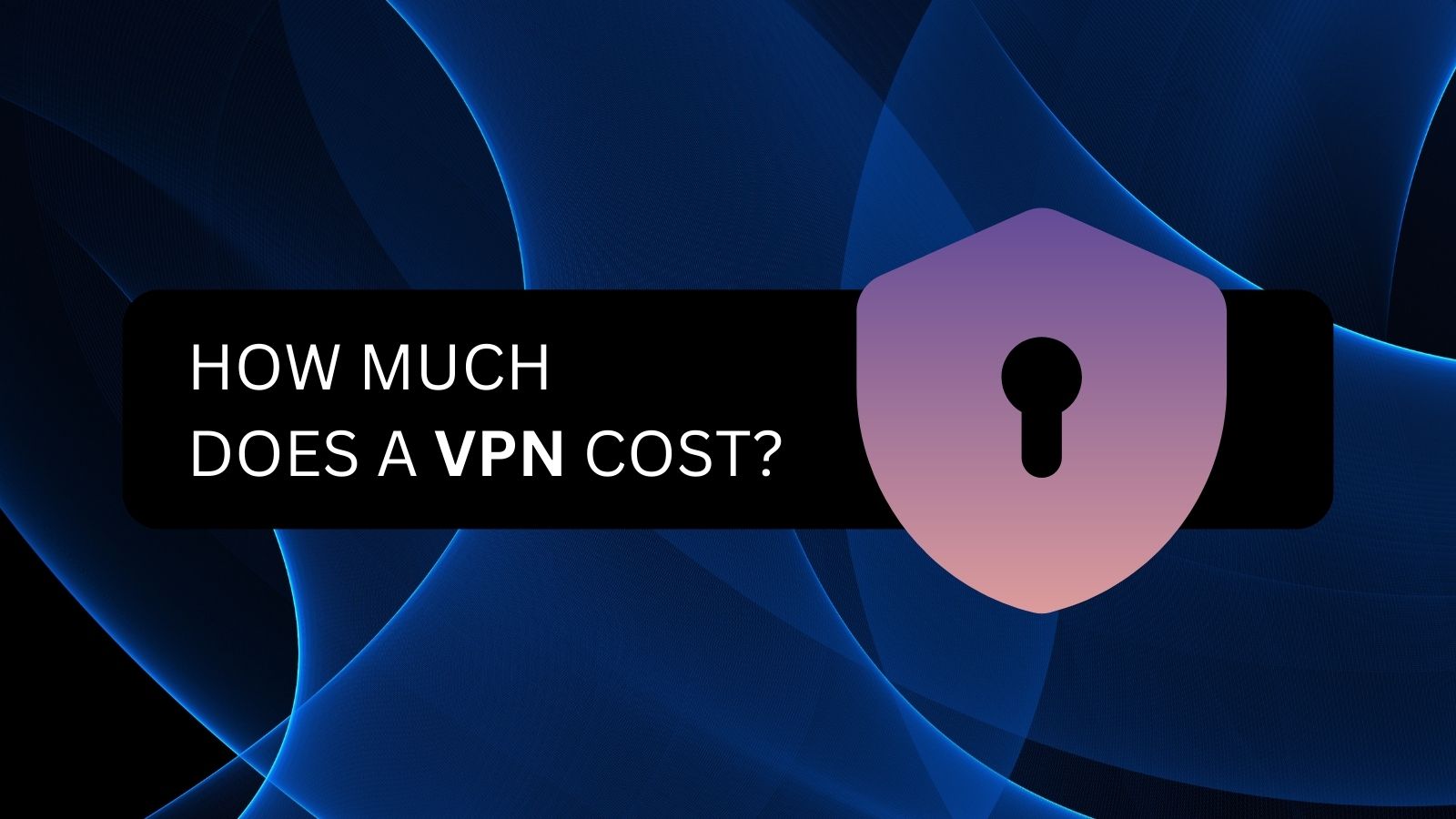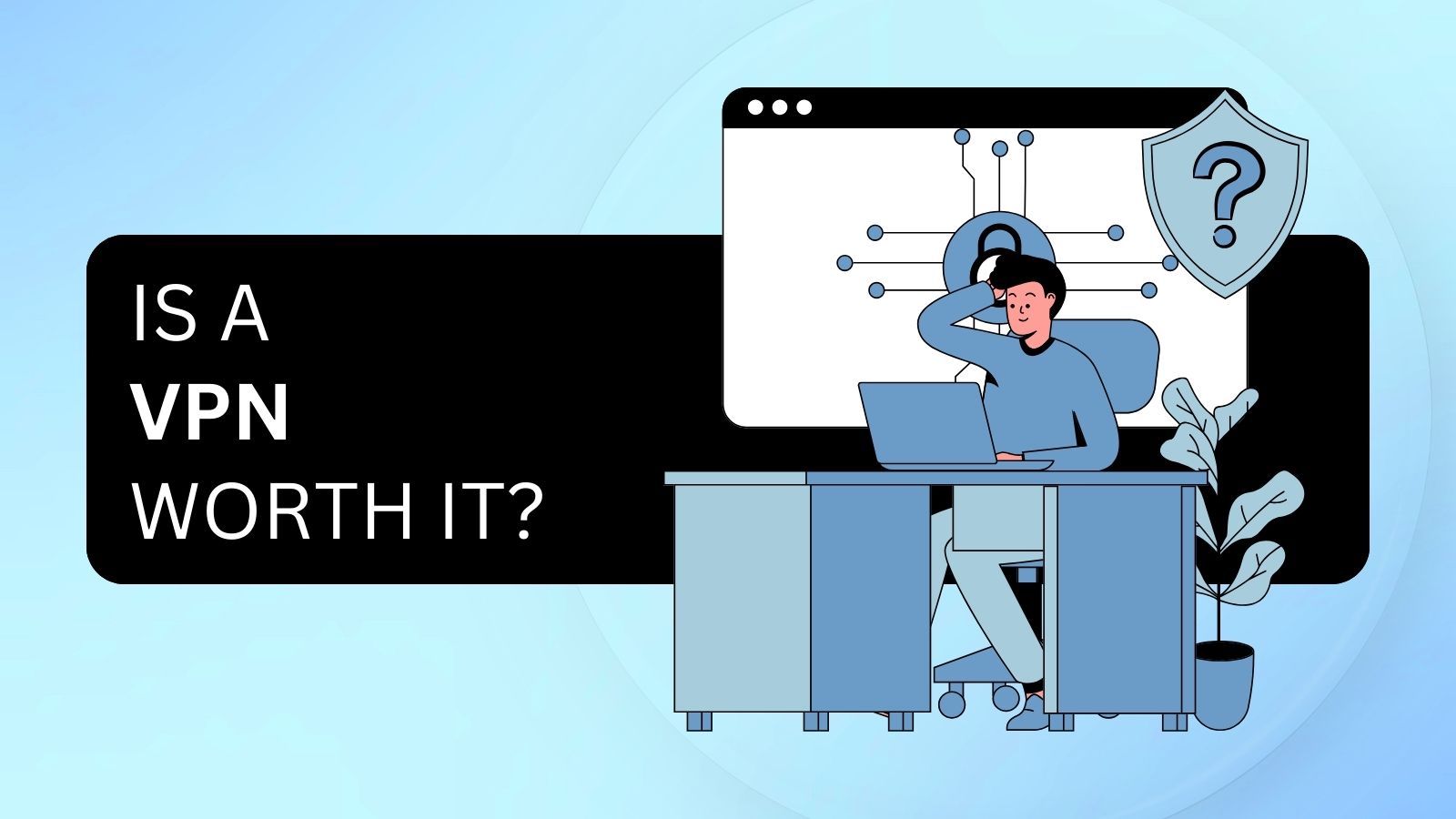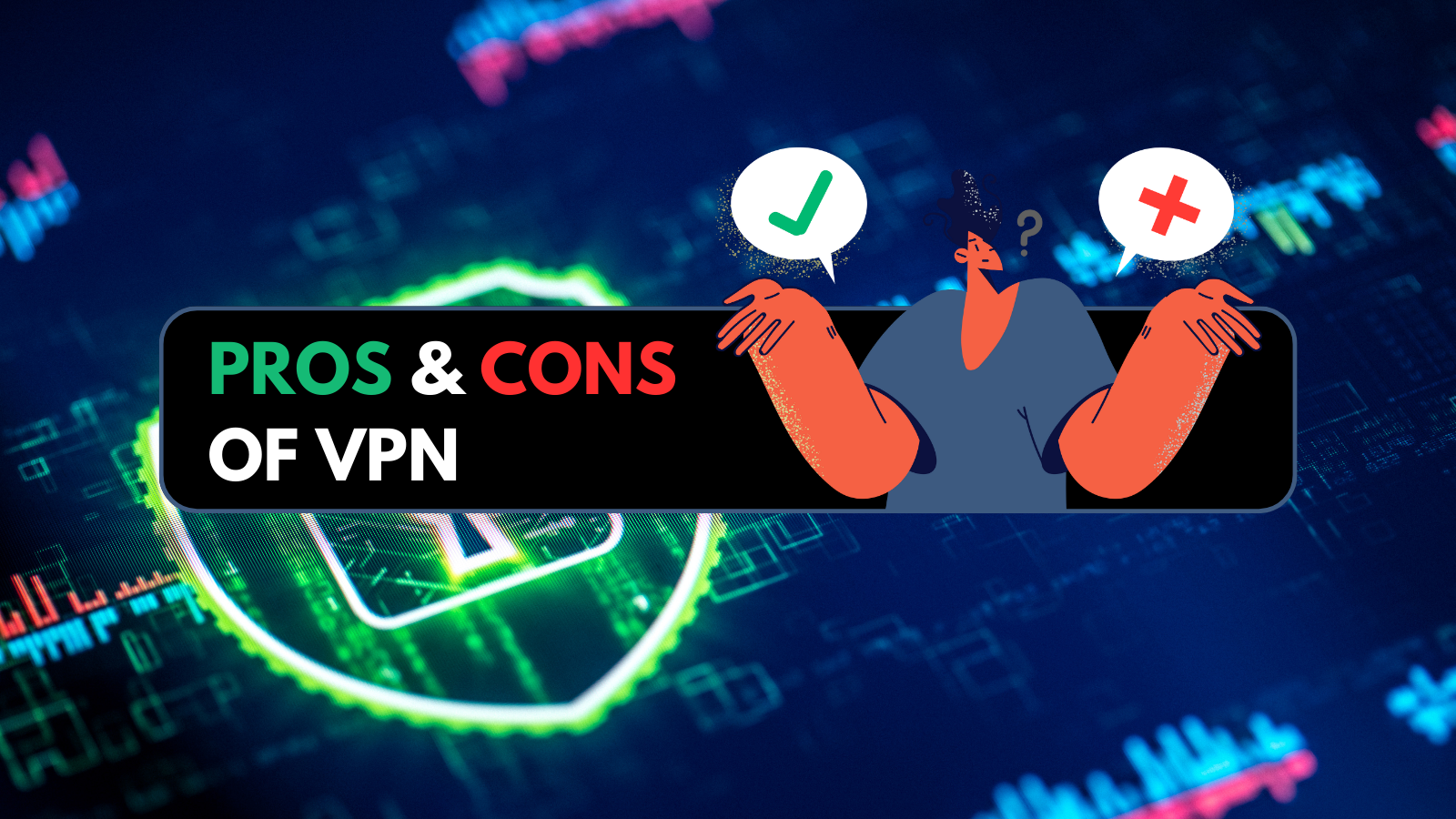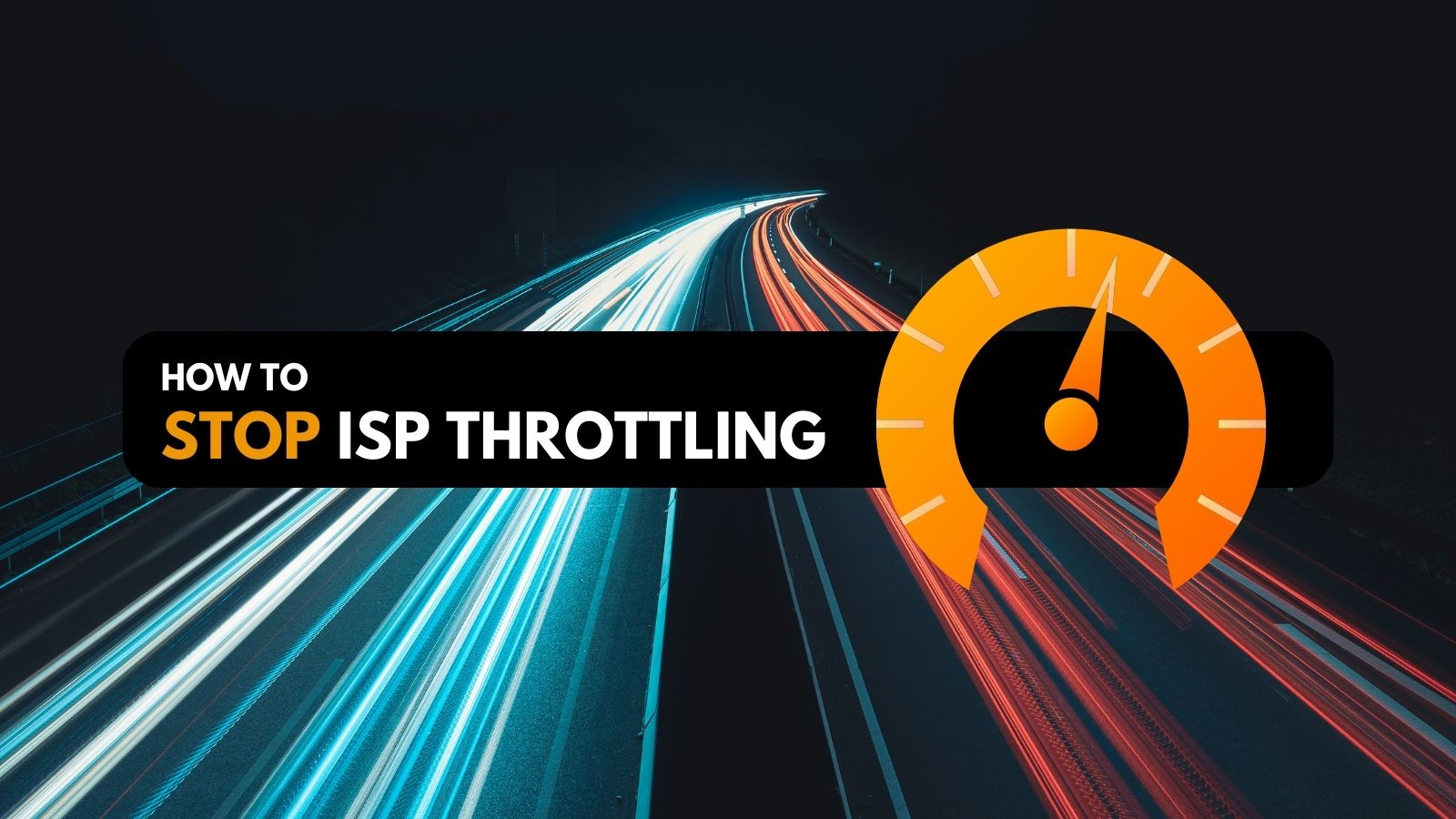
When you purchase through links on our site, we may earn an affiliate commission. Here’s how it works.
What is OpenVPN – Is it Safe & How Does it Work?
OpenVPN is among the most popular VPN protocols, thanks to its top-notch security features and unbreakable encryption. While it slightly lacks in speed, it remains the most trustworthy protocol in the world of VPN services due to its open-source nature.
Imagine you’re using a VPN to protect sensitive data while living in a heavily censored country, such as China. Which VPN protocol would you rather trust? One that is suspected of having vulnerabilities like SSTP or OpenVPN that is extensively tested by developers and cyber-sec experts? Of course, you would want to choose the latter.
But how does OpenVPN work, and how can you enable it on your device? And which OpenVPN client is the best? In this article, we’ll answer all these questions and teach you everything that you should know about OpenVPN. So without any further ado, let’s get started.
What Is OpenVPN?
OpenVPN is an open-source VPN protocol that provides an ultra-secure and reliable way to establish encrypted connections between your device and a VPN server.
It was created by James Yonan and Francis Dinha back in 2001, which means that it has been in the industry for quite a while. Over all those years, it has gone through tremendous improvements due to extensive testing by developers.
OpenVPN has now become the go-to choice for many VPN users because anyone can inspect its code, which makes it highly transparent. Since it has a proven track record of good security and reliability, you can rest assured that it’s a safe choice.
How Does OpenVPN Work?
OpenVPN works by securing your data and preventing any unauthorized access by using strong encryption. It's built like a digital fortress! The cool thing is that it can work both as a VPN protocol and as a software tool.
OpenVPN uses 256-bit encryption to keep your data safe. But what does that really mean? To put it simply, this encryption level generates decryption keys that can have 2^256 possible combinations. That's a massive number, and even the most powerful computers in the world would take an unimaginable amount of time to crack it.
The reason why 256-bit encryption is better than 128-bit is the sheer number of possible key combinations. Fewer combinations make it easier for hackers to potentially crack the code and access your data. Based on this, we can say that 256-bit encryption is practically unbreakable.
Is OpenVPN Safe?
Yes, OpenVPN is highly safe and secure. It uses military-grade AES-256 encryption, which is also used by governments and banks to protect sensitive data.
This ensures your data stays secure. Furthermore, its open-source nature ensures that any vulnerabilities and weaknesses can be identified and resolved quickly. Hence, it is being updated quite frequently, thanks to a wide community of developers who test its code.
That being said, no technology is perfect, and OpenVPN is no exception. While the protocol itself is quite safe, its security depends on factors like proper implementation and your Internet practices. For maximum safety, we recommend choosing a capable VPN provider that offers OpenVPN protocol, such as ExpressVPN and NordVPN.
Speed and Security of OpenVPN
OpenVPN relies on the SSL (Secure Sockets Layer) security protocol, which is considered the standard technology for securing Internet connections. Thanks to SSL, OpenVPN ensures your data is not transferred in plaintext. Instead, this VPN protocol encrypts your data and turns it into a scrambled mess of characters.
But here's the catch. While it’s highly secure, OpenVPN isn't exactly the fastest protocol around. It's a bit heavy and clunky since it has over 70,000 lines of code! This makes its server-side implementation slower.
On the other hand, other often-used protocols like WireGuard and IKEv2/IPSec have a lighter code base. Hence, OpenVPN can face performance issues, and adjustments in the code can take a longer time.
OpenVPN UDP vs. OpenVPN TCP
OpenVPN can use two different modes called - UDP (User-Datagram Protocol) or TCP (Transmission-Control Protocol). So, which one should you choose? For faster performance, choose UDP. But if you want more stability, go for TCP.
UDP is quicker because it skips all the extra error-checking and data verification steps that TCP does, which means less overhead and faster data transmission. Capable VPNs like ExpressVPN allow you to choose between both UDP and TCP.
OpenVPN as a VPN Software
Remember that OpenVPN isn't just a VPN protocol - it can also work its magic as a standalone VPN software. The software is open-source and allows you to create custom VPN solutions and enjoy more flexibility and control over your connection.
However, the manual configuration of OpenVPN can be a hassle. To see what you can expect, here’s the official set-up guide from OpenVPN’s website. That said, you’re better off choosing a capable VPN provider that offers OpenVPN pre-configured with its client.
What Are the Pros and Cons of OpenVPN?
The biggest benefit of OpenVPN is that it’s highly secure. On the other hand, OpenVPN’s biggest con is its performance. But there’s more you need to keep in mind.
Let’s take a look at OpenVPN’s main pros and cons.
PROS
- Better security: OpenVPN’s open-source nature allows for extensive testing and verification, which means that weaknesses and vulnerabilities get resolved quickly.
- Strong encryption: OpenVPN’s 256-bit encryption is practically impossible to break even by the fastest computers in the world.
- Reliable connection: It’s known for stability and the ability to bypass pesky firewalls such as the Great Firewall of China.
- Supports multiple platforms: This VPN protocol is compatible with many operating systems like Solaris, Linux, Windows, and macOS, among others.
- More control over your connection: OpenVPN can be configured to provide flexibility and custom solutions, which is why it’s used by the majority of commercial VPNs.
- Perfect forward secrecy: Keeps keys safe even if they're compromised.
CONS
- Slow speed: Not the fastest VPN protocol because of a clunky code base of more than 70,000 lines.
- Complex manual setup: Can be a bit challenging to configure it manually.
- Need for additional software: If you want to tinker around with OpenVPN, you will have to install additional software.
Comparison Between OpenVPN and Other VPN Protocols
While OpenVPN is extensively tested and has amazing security, it’s not the best in terms of speed. This is where other VPN protocols, like WireGuard, can take the lead while offering comparable levels of security.
Let’s compare some commonly known VPN protocols with OpenVPN.
- OpenVPN vs. PPTP: PPTP was developed by Microsoft back in the day, but it's now considered insecure and out-of-date. It has known vulnerabilities that can allow hackers to crack it easily. In comparison, OpenVPN is miles ahead of PPTP in terms of security and reliability.
- OpenVPN vs. L2TP: L2TP is another VPN protocol you might have heard of. It's not bad, but OpenVPN is generally safer by default. Plus, L2TP can have issues with firewalls, whereas OpenVPN bypasses most firewalls just fine.
- OpenVPN vs. IKEv2: IKEv2 is great for mobile users because it's quick to reconnect when your signal drops, but OpenVPN still takes the lead in terms of security. So, if you're looking for the most secure option, OpenVPN is the way to go.
- OpenVPN vs. SSTP: SSTP was created by Microsoft as a replacement for PPTP, and it comes integrated with all Windows systems. It offers a comparable level of service, but it may not be very reliable. The leaked reports by Edward Snowden suggest that SSTP might have some vulnerabilities built into it by Microsoft to aid the NSA’s mass surveillance programs.
- OpenVPN vs. WireGuard: WireGuard is like the new kid on the block in comparison to OpenVPN. It's super lightweight, with just 4,000 lines of code, and it's both secure and fast. However, it hasn't been tested as extensively as OpenVPN. So, while it has potential, OpenVPN is still the tried-and-true option.
- OpenVPN vs. Shadowsocks: Shadowsocks is a free and open-source encryption protocol based on the SOCKS5 proxy. It was designed to help people in China circumvent the Great Firewall and surf the Web safely. While it's useful for that purpose, it's not the best protocol in terms of security and can be a bit tricky to implement. OpenVPN, on the other hand, offers a more well-rounded and secure solution.
Best OpenVPN Clients
Setting up OpenVPN manually can be very time-consuming and difficult. Fortunately, you can enable OpenVPN on almost all capable VPN clients, which makes your interaction with this protocol nearly effortless.
After deep research, we’ve put together a list of the top 3 services that implement OpenVPN. Let’s take a look at each of these providers.
- ExpressVPN: This client provides both OpenVPN TCP and UDP that are ready-to-use without manual configuration. Other than that, it also offers Lightway, L2TP/IPsec, and IKEv2. However, there’s no option for WireGuard, which is another popular choice. Get ExpressVPN Now.
- NordVPN: NordVPN offers three protocols, and these include OpenVPN, IKEv2/IPsec, and WireGuard (NordLynx). It currently uses NordLynx by default, but you can change the protocol in the settings with a few clicks. Try NordVPN.
- CyberGhost VPN: This VPN client offers three VPN protocols. These are OpenVPN, Wireguard, and IKEv2. Its OpenVPN protocol is set on the UDP port by default for faster speeds. But you can set it to TCP for more stability. Get CyberGhost.
How to Use OpenVPN
You can use OpenVPN by manually configuring it on your device or installing a VPN client that comes pre-configured with this protocol.
Generally, most VPN users do not prefer to configure OpenVPN manually because it can be a lengthy and complex process. Not everybody has the necessary technical knowledge to set up this protocol correctly. Hence, for most users, subscribing to a VPN service that offers OpenVPN pre-configured is ideal.
That said, we recommend ExpressVPN because it lets you use OpenVPN on any device. All you have to do is select it from the list of protocols in its settings.
If you’re confused, don’t worry because, in this section, we’ll explain the steps to enable OpenVPN in ExpressVPN. These are the steps you need to follow:
- Subscribe to a VPN that supports OpenVPN, such as ExpressVPN.
- Set up the VPN on your device and log in using your credentials.
- Launch ExpressVPN and click on the three horizontal bars in the top-left corner.
- Click ‘Options’ to open up the settings panel.
- Now click on the ‘Protocol’ tab to bring up the list of available protocols.
- Choose ‘OpenVPN’ (UDP or TCP). A new dialogue box will pop up asking you for confirmation. Click ‘Change Anyway’ to confirm your selection.
Is OpenVPN Free?
Yes, OpenVPN is free since it’s an open-source project. However, OpenVPN’s commercial “Access Server” is not free to use.
Most people will pull the trigger when looking at a free product. But you should remember that OpenVPN can be very complicated to set up if you do not know what you are doing. Be ready to get your hands dirty and do a lot of tinkering to make it work.
If you’re setting it up yourself, do not expect help from customer support. Instead, Google and community resources on the OpenVPN website will be your best bet.
Final Thoughts
OpenVPN is an open-source protocol for VPNs that allows point-to-point secure access. It has now become the gold standard for a high level of security in networking. On top of that, you can choose to configure it manually (a highly complex procedure) or use a commercial VPN with OpenVPN already built-in (a very simple procedure).
That said, you can find OpenVPN pre-configured in most of today’s VPN clients. However, we recommend ExpressVPN because it allows you to choose between two OpenVPN modes (UDP and TCP) while offering additional protocols like Lightway, L2TP/IPsec, and IKEv2.
That’s all you need to know about OpenVPN. If you have any questions for us, let us know via the comments section below. Thank you for reading!

